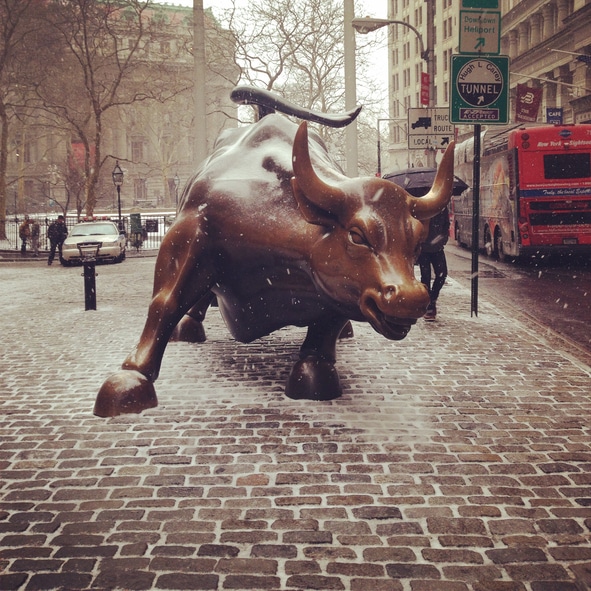We all have a complex relationship with our material wealth and possessions. As we approach Purim, when we celebrate our unity through charitable gifts of charity and food; as we read the Torah portion that addresses the Temple offerings, which were meant to teach us how to offer our physical lives to a higher purpose – it is a most appropriate time to reflect on our attitudes to money and prosperity and the way we navigate our way in this material world.
In this spirit, we bring you part four of Money and Spirituality, a paper that explores the power of wealth.
A NEW LOOK AT HUMAN LABOR
The ‘soul’ look at wealth turns the drive for wealth on its head: The true value of wealth is spiritual value. Thus mans’ pursuit of wealth is essentially not a selfish endeavor (regardless whether we are conscious of the fact or not), rather, it represents the soul’s search for transcendence and meaning in a material world, tension predominates when this search is not realized, and charity is what relieves the tension and expresses this search in tangible form.
The soul perspective on wealth reflects and is an extension of a radical new perspective on man as well. Indeed, the soul perspective is holistic in the sense that it adjusts our vision to an all encompassing soul-look at life in general.
From a Torah perspective mans’ value and mans’ consciousness is driven by the Divine. Man was created in the “Divine Image.” This is mans inherent personality and value, his “true reality” (in contrast to Marx’s view [1] ). The Divine spirit manifests itself in material drives of different sorts, but at the engine of all these drives is the soul being drawn to its particular “sparks,” in its search for energy and fuel.
Man’s individuality and by extension his private property is a reflection of his unique spiritual nature. The Torah therefore supports private ownership.
Human labor and work – which generates our wealth – is an integral component in human nature. “Man was born to toil.” “One measure” resulting from his own work is more precious to man than “ten measures he receives from others.” Unearned gifts are labeled “bread of shame.” The reason for this is because through work and effort man has the capacity to become G-dly – to be a giver, a contributor to life, an equal partner in the creation and development of the universe. [2]
Through our physical labor and profession we fulfill our calling to refine, civilize and transform our corner of the world into a Divine home. The message of the Torah to each individual is:
“You are indispensable to a larger cosmic plan. Your contributions, your work, your value is not based on economic supply and demand, your value is not determined by others, it is not arbitrary; your value is an inherent Divine absolute. No man can take it away, because no man gives it to you.”
Yet, work divorced of its spiritual center causes alienation and fragmentation. Like wealth, when work becomes an end in itself rather than the means to a higher goal, it enslaves and consumes us.
According to the Torah, this “split” between “who you are” and “what you do,” between your work and your spiritual calling, between your means and your personal mission statement is an aberration that resulted from Mans’ eating from the “Tree of Knowledge.” This created an altered state of consciousness where good and evil are intertwined. Profit also brings exploitation. Benefit for one creates alienation for another. Wealth can be both good and bad at once.
In order to repair this distortion we need to recognize that the problem lies not with work and the wealth it generates; not with the individual drive for success and profit; not with private ownership – but rather with realigning and focusing our work, wealth and individuality toward the higher calling (as enumerated at length above).
In his critique of the Capitalist system Marx concerns himself greatly with the devaluation (Entwertung) of man in capitalistic society. In his ‘Paris Manuscripts’ (1844) Marx’s scathing attack on capitalism powerfully captures the essence of worker mentality, how the Capitalist system reduces the worker to no more than a commodity, thus leading to mans’ alienation (Entausserung) and estrangement (Entfremdung) from his essential self. [3]
Marx also cynically describes the distortion of value that money creates:
“The universal confusion and exchange of all things, an inverted world, the confusion and exchange of all natural and human qualities.”
This description is remarkably accurate – accurate that is under the present prevailing circumstances. Marx brilliantly depicts the post-Tree of Knowledge mentality, when man became alienated from his purpose, hence from his work. The exploitation of man resulting from private ownership, and the four key forms of alienation described in these ‘Manuscripts’ – alienation between laborer and 1) the product of labor, 2) the act of production, 3) other laborers, 4) himself – all results from the distortion created by the split between matter and spirit, between “who you are” and “what you do,” the schism and estrangement of work and wealth from its source.
Conversely, the integration between producer and product, between producers, between all the forces of labor and production, can truly be achieved only through unity on the root level: where man, his work, production, livelihood and generated wealth are all driven toward his higher, spiritual goal. Wealth becomes reunited with its soul (spiritual sparks), that directs it.
Interestingly, Marx equates the workers’ alienation with religion.
“The more man puts into God, the less he retains within himself.”
He sees religion and G-d as outside forces, alien to mans’ individual sense of self. This too, is our distorted perception that matter and spirit are divorced.
Marx makes the same mistake and falls into the exact trap that he accuses the ‘political economist’ of: he assumes as facts that which is supposed to be deduced. By looking at man and at wealth from its spiritual root, we can apply a new way of valuing man. Without any pre-assumptions, according to Marx the question can be asked: why should we value each man? What is wrong with exploitation? Who cares if there is alienation? The only answer is to value man for what he truly is – not a commodity, but as a Divine indispensable contribution with a unique calling. All Marx’s critique that private property must be inherently exploitative and must alienate men, is only true if the man and his work is not driven with divine purpose. [4]
With this understanding of the innate Divine nature of both man and wealth, with its appreciation of the sanctity of human individuality, the Torah’s economic model can be defined as a capitalist mechanism with a socialist soul. [5]
With the failure of Marxist and socialist economic theory, the free market economy is the current system of choice. However, the Torah’s model offers another perspective: it is driven by individual markets, yet with an underlying personal and collective sensitivity to the real meaning and power of wealth, and appreciation of the underlying thread that unites all people of all classes. Charity is not just a virtue of the wealthy (benefiting the worker not directly but as a chance spillover from increased prosperous conditions around him), it is the driving force of wealth in recognition of the true meaning of wealth. Regulated not “by the blind forces of the market and competition,” and definitely not by a “consciously implemented plan of economic administration” [6] (which failed miserably, as witnessed in the abuse of centralized power and state controlled economy in the Communist experiment of the 20th century), but by the spiritual unifying goal within.
The failure of Marxist theory is the fact that no individual can be trusted with power to centralize and control the common good. The best and only guarantee for the common good is when it originates from the grass roots – a decentralized economy, driven by the powerful diversified forces of individuals empowered with unprecedented information and knowledge. This is the true reality check – a unity that is created from the diversity.
All this is predicated on the belief that the human can and will recognize his inherent nature as a divine creature, dedicated to using all his means for the greater good.
Production is still motivated by personal drive and gain, however, it not for selfish purposes, but to connect to a higher goal: G-d. Distribution is not just for income, but to actualize the spiritual potential of wealth.
As opposed to Marxian theory that views man as a product of his environment, [7] the Torah’s faith in a human being is absolute. The Torah exhorts:
“You, man, were created in the Divine Image. Your inherent nature is divine. Selfishness and greed is superimposed by a material world created by G-d – a world that allows for all the economic classes to divide us – in order to allow us the opportunity to be wise and pierce the false veneer, and recognize the true Divine nature of wealth and power, and in effect use it for its intended purpose.”
When human consciousness is raised and we feel that our security and value does not come from a mercurial physical world but from within, from our Divine soul, we can then exchange the ‘teddy bears’ of our material security blankets with a true and eternal self-esteem.
Inevitably this will change our attitude to and use of wealth.
Perhaps one can say that the Torah’s futuristic economy will be an elegant synthesis of a free economy choosing to behave in some way like a socialist one, with the key distinction being, that the collective sharing will come from within, self initiated rather than imposed. Recognizing the true nature of wealth will drive men to create systems that will honor and express the inner purpose of our wealth: creating a home for G-d. To see the acquisition of wealth as a means for spiritual growth, for understanding ourselves and G-d, for filling the world with Divine knowledge as the waters cover the sea.
THE FIRST ECONOMIC MODEL
All the elements and challenges of wealth – its value, its abuse and its redemption – are illustrated in various incidences throughout the Bible, especially in the birth of the Jewish people upon leaving Egypt. These insights combine to provide the Torah’s economic model.
The Value of Wealth
The importance and significance of material wealth, and individual ownership is first emphasized when G-d promises Abraham that after their bondage and oppression the Jewish people will be freed and leave with “great wealth.” [8] And thus it came to be. [9] Indeed, G-d insisted that they acquire this wealth, even though the people were ready to leave empty handed: “Allow us to leave and forget the wealth” they cried. [10] Why was it necessary for the Jews to leave with the wealth of Egypt? Because the wealth contained the abundance of spiritual sparks that they elevated through their years of exile in Egypt. This “great wealth” was the redeeming factor in all their hard years of enslavement.
The Abuse of Wealth
After the Jewish people leave Egypt, their abuse of the wealth they accumulated is illustrated in two major incidents. The people use their wealth to construct the ‘golden calf.’ [11] And as discussed earlier, Korach together with his cohorts, Dathan and Aviram abused their wealth. [12]
The Redemption of Wealth
Finally, the Torah describes the redemption of wealth and the realization of its true purpose: the elevation of spiritual sparks through charity:
The very first model of philanthropy was the construction of the Temple, the Mishkan in the wilderness. Following their exodus from Egypt, and the great wealth the Jewish people amassed, [13] G-d commands Moses: You shall gather contributions for Me from all the people – men, women and children. With it you shall “build for Me a sanctuary, and I will rest among them.” [14] Who is ‘them’? I will rest among the people, in each one of them. [15] Were Moses to raise the necessary funds only from the wealthiest, than the Temple would have been exclusively for the elite. However, the House of G-d is a home for each and every person, thus it must be built with every individual’s contribution.
According to some opinions, the fact that the Jewish people used their wealth to build the Mishkan was a tikkun (repair) for the wealth with which they built the golden calf. [16] We can say, that the golden calf was an example of ‘capitalism’ gone awry, where individual wealth was abused and used for self-glorification and self-worship – creating a false god out of gold. In contrast, the Mishkan is the quintessential model for a healthy economy, where individual wealth is not denied nor is it transferred to centralized administration; rather it is used for building a Divine home.
The Mishkan is a microcosm of the universe. [17] The purpose of our material existence is to transform it into a home for G-d, using our material wealth and possessions. Every person, man, woman and child has this obligation and opportunity; for this purpose each has been designated his or her divine ‘sparks,’ as discussed earlier.
Let us now return to Korach’s rebellion. Korach’s rebellion was a misguided attempt at correcting this flaw by eliminating class struggle, and creating a so-called equality. However this was flawed by the fact that it did not consider the inherent human diversity, and ultimately not transforming wealth, only in avoiding the problem.
The response to Korach: 1) Not appreciating and recognizing the inherent diversity in man. The challenge is not to superimpose artificial equality and artificially eliminate this inherent diversity, but to align and channel it. 2) This can only be done by creating a connection of spirit and matter, that the material life recognizes and aspires to its spiritual roots.
Torah does not advocate the socialist ideal of relinquishing individual wealth for the common good. Torah sanctions private ownership (besides for the Levites [18] ), combined with the obligation of charity. It is actually considered reckless to give more than a fifth (except in a life threatening situation). Individual wealth is thus cherished, yet the goal is that the individual appreciate the true spiritual meaning of his wealth.
The Torah economic model, therefore, is a form of capitalism with a soul. Individuality together with G-d is the response to all Marx’s critique.
In the following section, I will use this Torah economic model/blueprint to develop a contemporary model for wealth today. As the prophet says. “just as in the days of Mitzrayim, I will show you wonders.” Exodus offers us a model for our economic future.
Continue Reading the Money and Spirituality Series – Part 5
[1] See his Contribution to the Critique of Hegel’s Philosophy of Right(1844).
[2] The fact that Torah economics sanctifies individuality, hard work and natural/rational efforts would seem to refute Weber’s contention as to the spirit and roots of Western Capitalism in Puritan Protestantism. Yet, one can explain this by way of describing Torah economics as not having infiltrated secular society at the time of the birth of modern Capitalism, though it clearly did impact the Protestant leaders. Regardless, Weber obviously is mistaken in his description of Judaism’s view on work and wealth. See Affluence in Context, by Dr. Cowen.
[3] “Labor is external to the worker, i.e. does not belong to his essential being; that he, therefore, does not confirm himself in his work, but denies himself, feels miserable and not happy, does not develop free mental and physical energy, but mortifies his flesh and ruins his mind. Hence, the worker feels himself only when he is not working; when he is working, he does not feel himself. He is at home when he is not working, and not at home when he is working. His labor is, therefore, not voluntary but forced, it is forced labor. It is, therefore, not the satisfaction of a need but a mere means to satisfy needs outside itself. Its alien character is clearly demonstrated by the fact that as soon as no physical or other compulsion exists, it is shunned like the plague. External labor, labor in which man alienates himself, is a labor of self-sacrifice, of mortification. Finally, the external character of labor for the worker is demonstrated by the fact that it belongs not to him but to another, and that in it he belongs not to himself but to another. Just as in religion the spontaneous activity of the human imagination, the human brain, and the human heart, detaches itself from the individual and reappears as the alien activity of a god or of a devil, so the activity of the worker is not his own spontaneous activity. It belongs to another, it is a loss of his self.”
[4] See Rabbi Menachem M. Schneerson, correspondence (Likkutei Sichos vol. 33 pp. 248), regarding religious Jewish radical socialists, how socialism is no contradiction to Torah.
[5] See Professor Yehudah Levi, Is Torah Capitalistic or Socialistic? (B’Or Ha’Torah number 8 and 9).
[6] Bolshevik leader N.I Bukharin (1920).
[7] It is not the consciousness of men that determine their existence, but their social existence that determines their consciousness (ibid).
[8] Genesis 15:14.
[9] See Talmud, Pesachim 119b: All the world’s silver and gold. See also Bechorot 5b. Tanchuma Beshalach 25.
[10] Talmud, Berochot 9b.
[11] Hosea 2:10. Rashi Deuteronomy 1:1. See Talmud, Berachot 32a.
[12] Pesachim ibid.
[13] Talmud, Pesachim 119a.
[14] Exodus 25:8.
[15] Reishis Chochma, Shaar HaAhava ch. 6. Shaloh 69a. 201a.
[16] Zohar II 224a.
[17] See Torat Ha’olah (Ramo).
[18] Numbers 18:20. Deuteronomy 18:1. Rambam, Laws of Shemittah v’Yovel 13:10-12.







